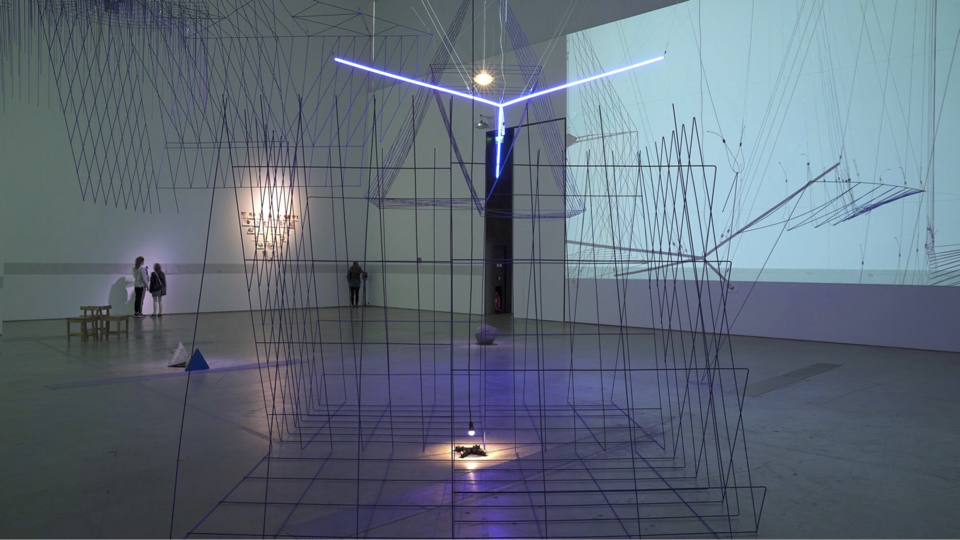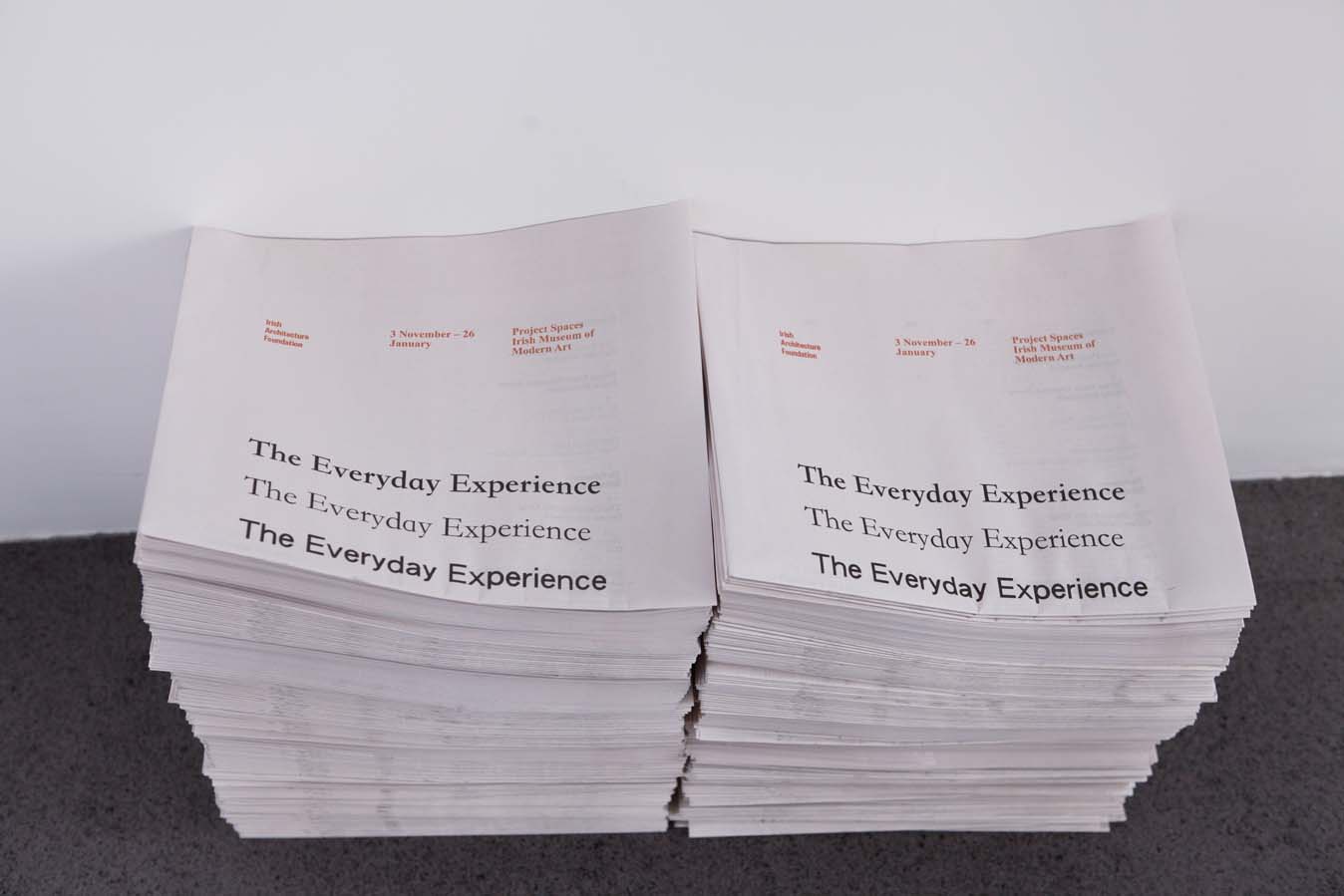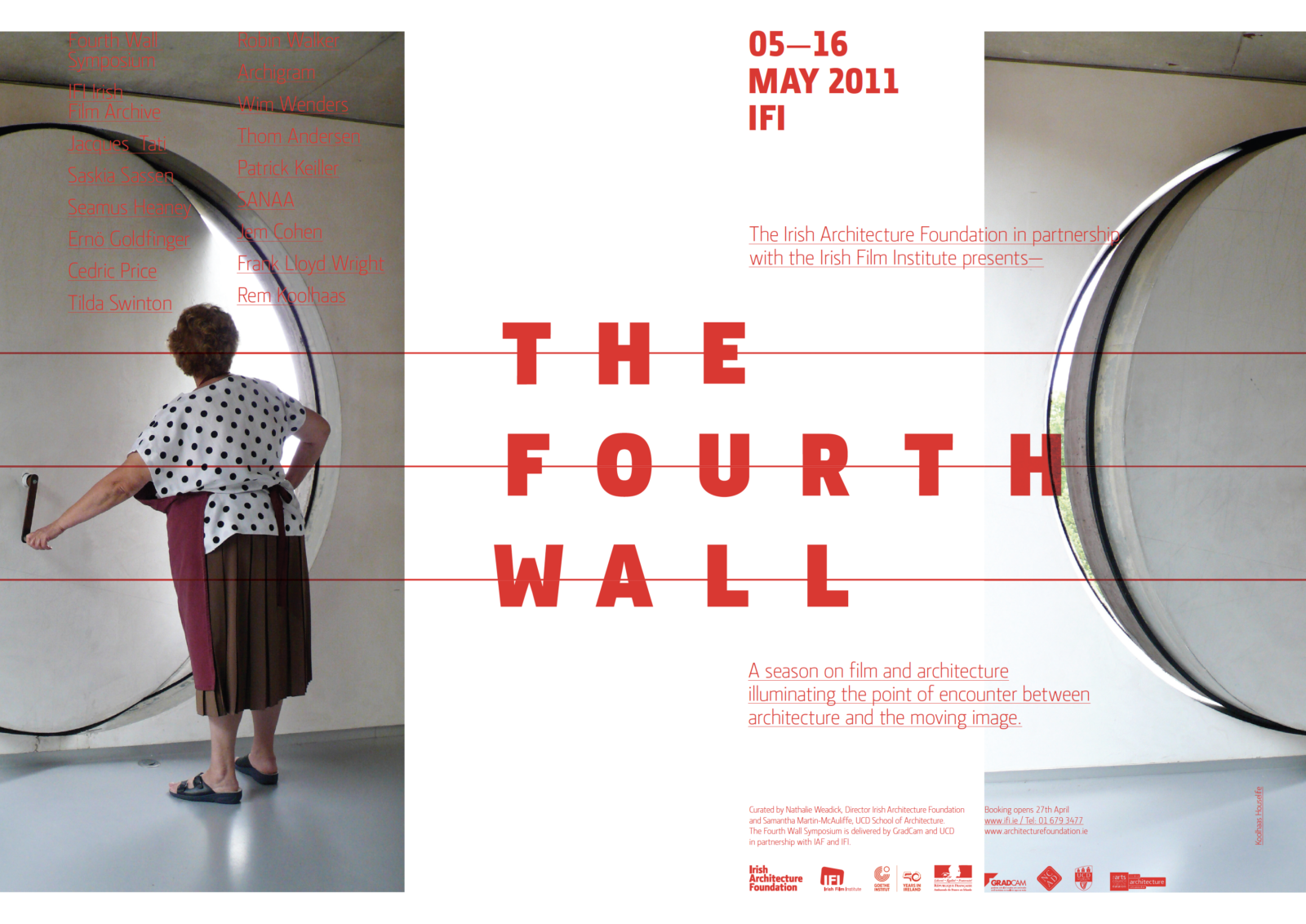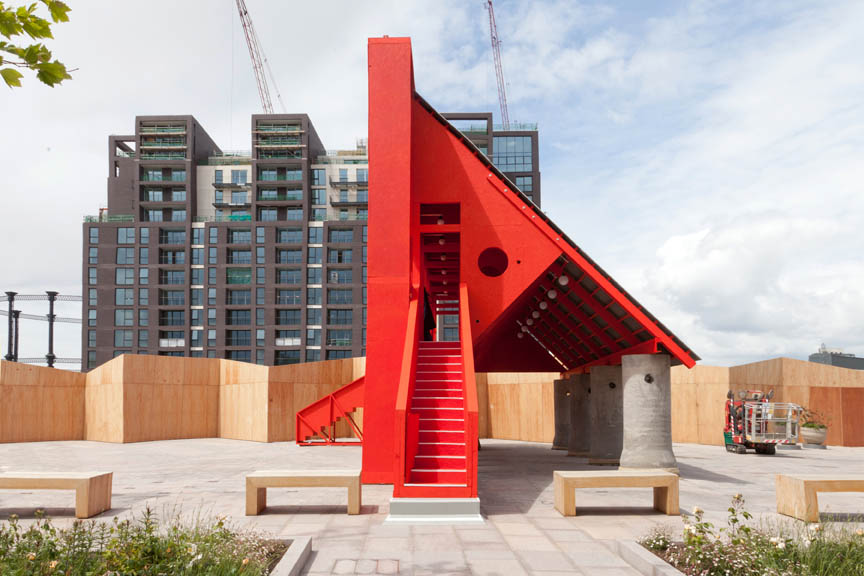
The Big Red a temporary structure by Clancy Moore, TAKA, Steve Larkin in Cubitt Square, Kings Cross, London, 2015.
New Horizon_architecture from Ireland formed part of Irish Design 2015 (ID2015) a year-long initiative backed by the Irish government exploring, promoting and celebrating Irish design throughout Ireland and internationally. New Horizon was conceived and curated by Nathalie Weadick Advisor to ID2015 and Raymund Ryan Curator, Heinz Architectural Center, Pittsburgh. Ten practices were selected and dispersed across three international architectural platforms in London, Chicago and Shenzhen in one year.
Whether allocated to London, Chicago or Shenzhen, each practice was asked to work in a setting or installation specific to its site and host city. These interventions could range from mini-retrospectives, including photography, film, drawings and models, to free-standing structures erected temporarily in the public realm. The architects were encouraged to work together.
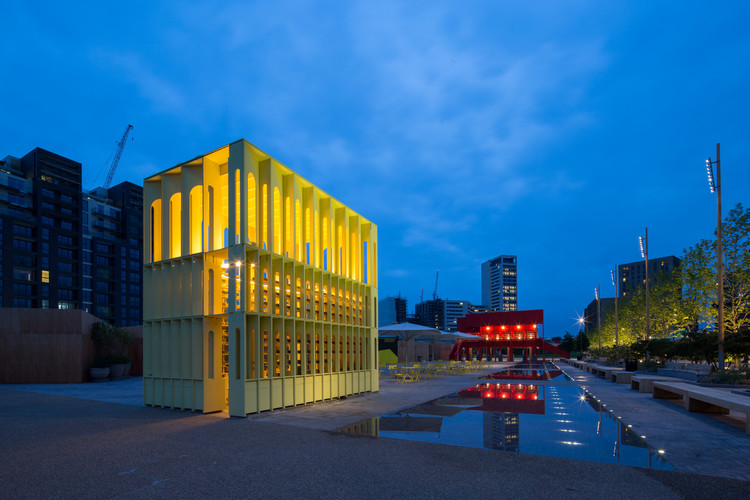
Yellow Pavilion by Hall McKnight and The Big Red by Clancy Moore, Taka, Steve Larkin at the London Festival of Architecture. Photo Andy Stagg.
Realising free-standing structures in this challenging metropolitan domain, the four practice collaboration from Dublin and Belfast saw the construction of two festive pavilions – one red and one yellow. The Yellow pavilion explored how the city is assembled from individual pieces, the arched wooden structure contained a thousand reclaimed bricks from Belfast, while The Big Red explored architecture’s role as a background to the activities it contains. The structure referenced corrugated steel hay sheds that are commonplace in the Irish countryside.
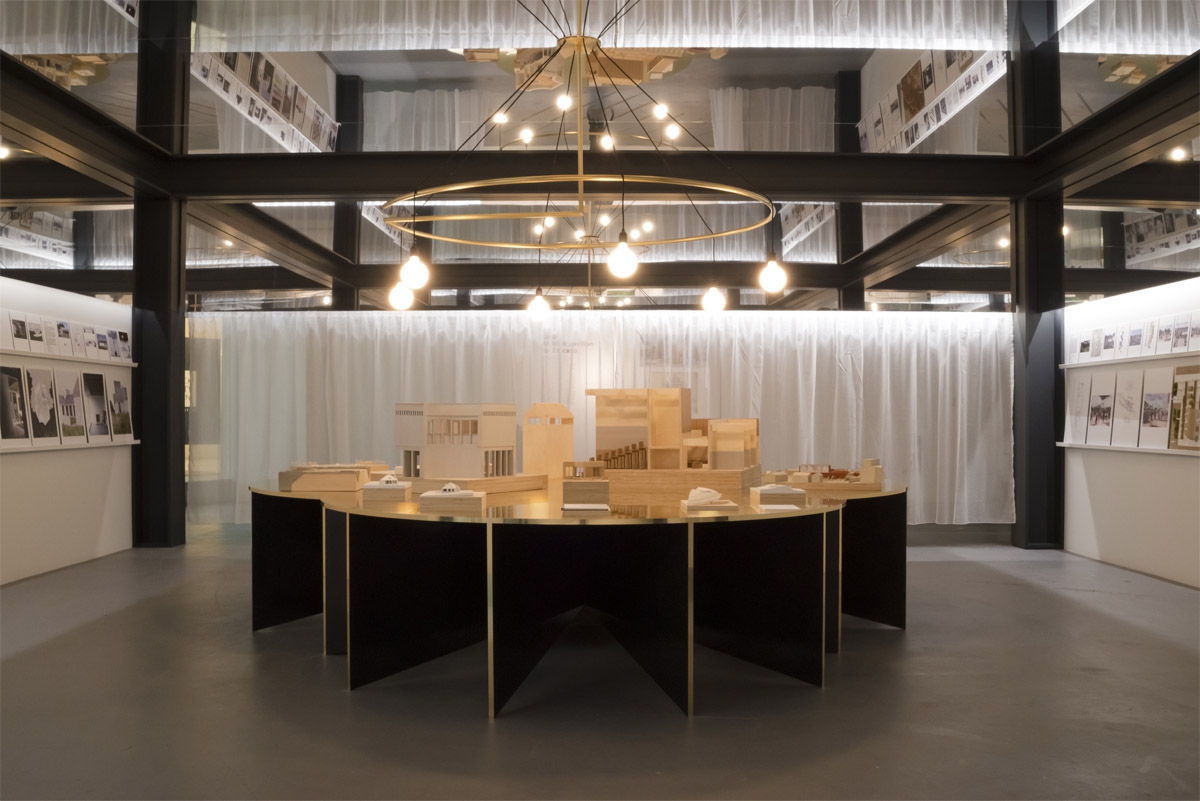
A2 architects, GKMP, Ryan Kennihan at the Chicago Architecture Biennial. Photo Alice Clancy.
Informed by the inaugural Chicago Architecture Biennial’s theme ‘The State of the Art of Architecture’ the three Irish practices from Dublin collaborated on constructing a temporary mirrored canopy, designing and fabricating a generous communal table, and presenting a selection of work from their offices at the Chicago Design Museum. The installation was a a nod to the inward and outward design relationship between Ireland and the America in the 20th Century.
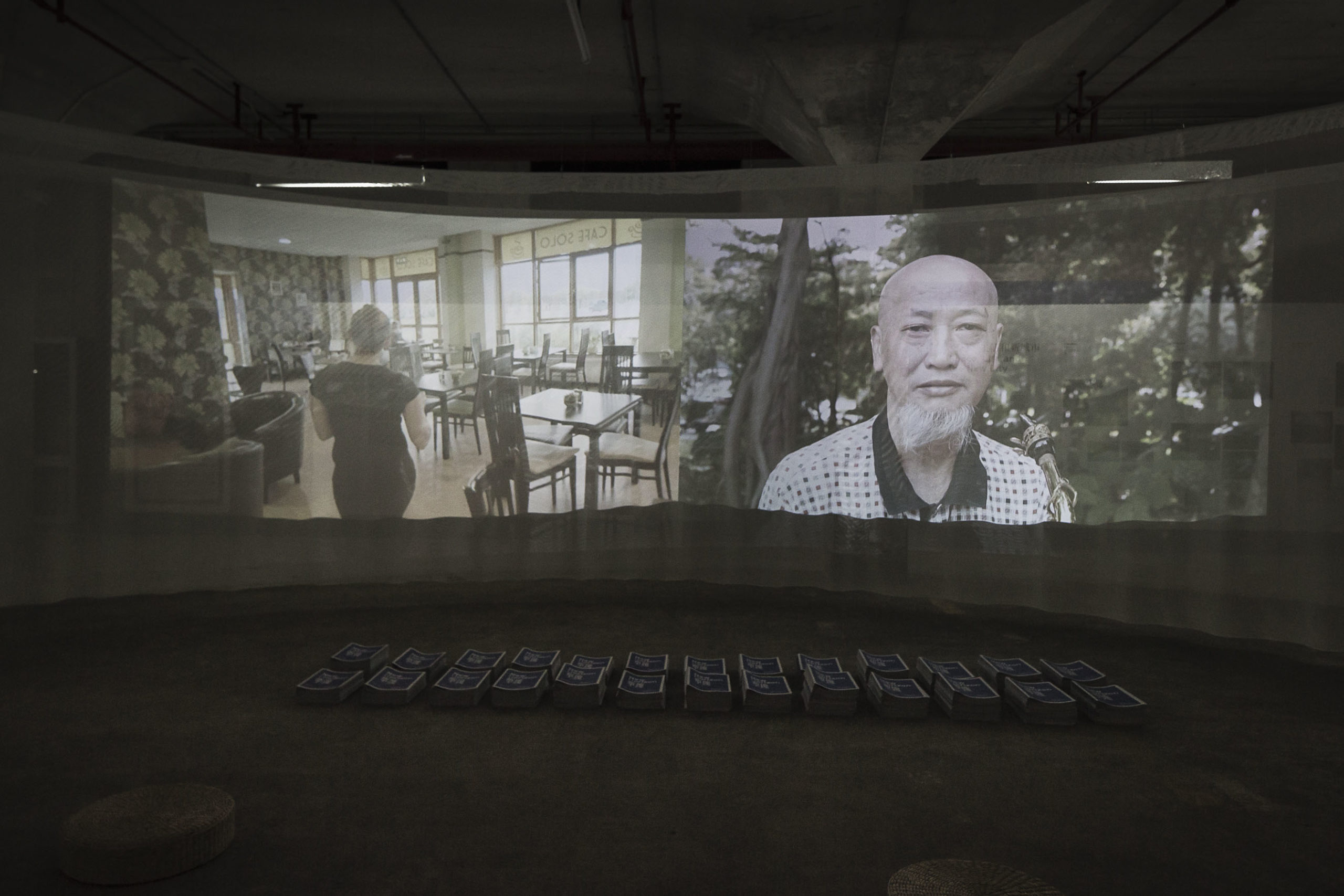
Urban Agency and AP+E at Hong Kong/Shenzhen Biennale, New Horizon. Photo Matthew Thompson.
AP+E (Jeffrey Bolhuis and Laurence Lord) and Urban Agency (Andrew Griffin, Maxime Laroussi, Heechan park and Henning Stuben) collaborated with Irish photographer and filmmaker Matthew Thompson and Areaman Productions, to create a sensory environment of concentric curtains within which two short films exposed the little known parallels in the economic formation and urban planning of both Shannon and Shenzhen.
After WWII, the rural town of Shannon on the west coast of Ireland became established as a transatlantic refuelling point, and in 1959 was developed as the world’s first Free Trade Zone and New Town. After many visits in the early 1980s by Chinese leaders to study this model, under the direction of Deng Xiaoping, the Shannon planning system was used as a template in the formation of Shenzhen.
A supplementary element called Nine Lives was developed, designed and curated my Emmett Scanlon and presented at The Design Museum, London and the Kilkenny Arts Festival. Scanlon presented extracts from the ongoing life stories of nine rooms designed by the nine participating architects in New Horizon.
Projects can be found here

